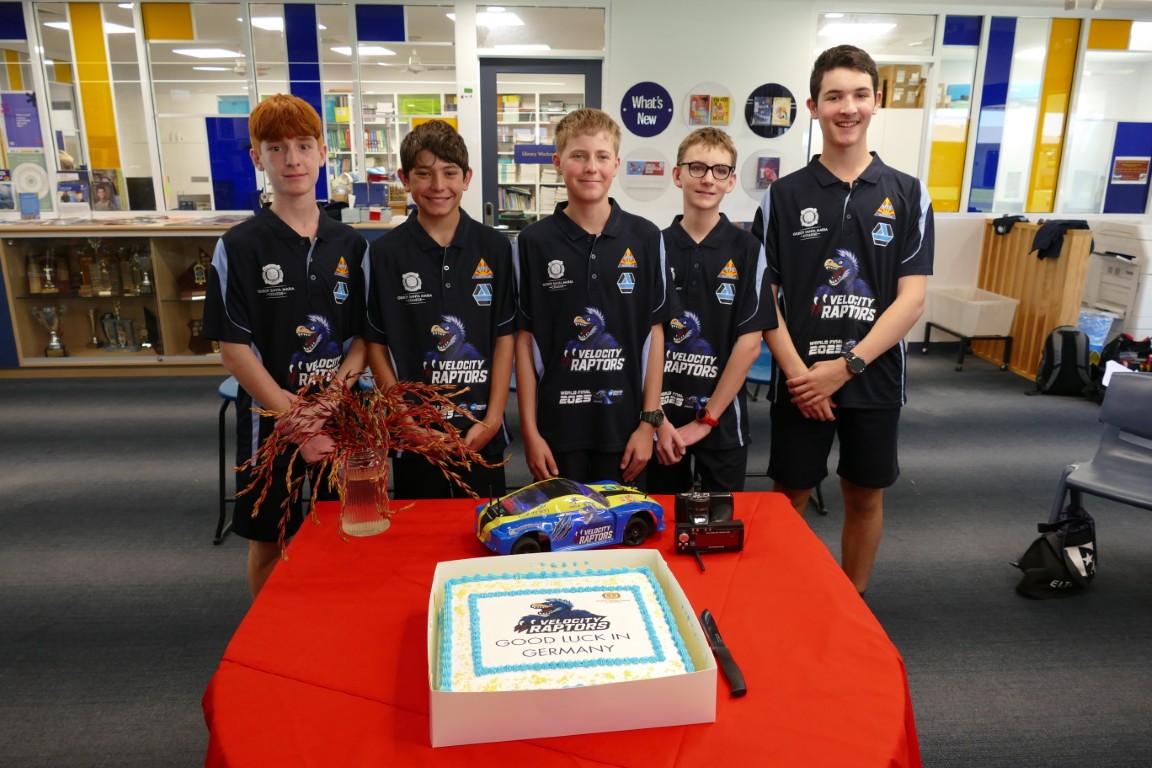
Local Students Compete In Hydrogen Grand Prix World Final In Germany Five talented students from Gilroy Santa Maria College in Ingham are trading the tropics for Germany as they compete in the Hydrogen Grand Prix (H2GP) World Final in Chemnitz. Known as the Gilroy Velocity Raptors, this Year 7–9 team earned global recognition after dominating the North Queensland Finals with a record-breaking 387 laps. In their first year—and as the youngest team competing—they’ve turned a lunchtime STEM club i
Read the full story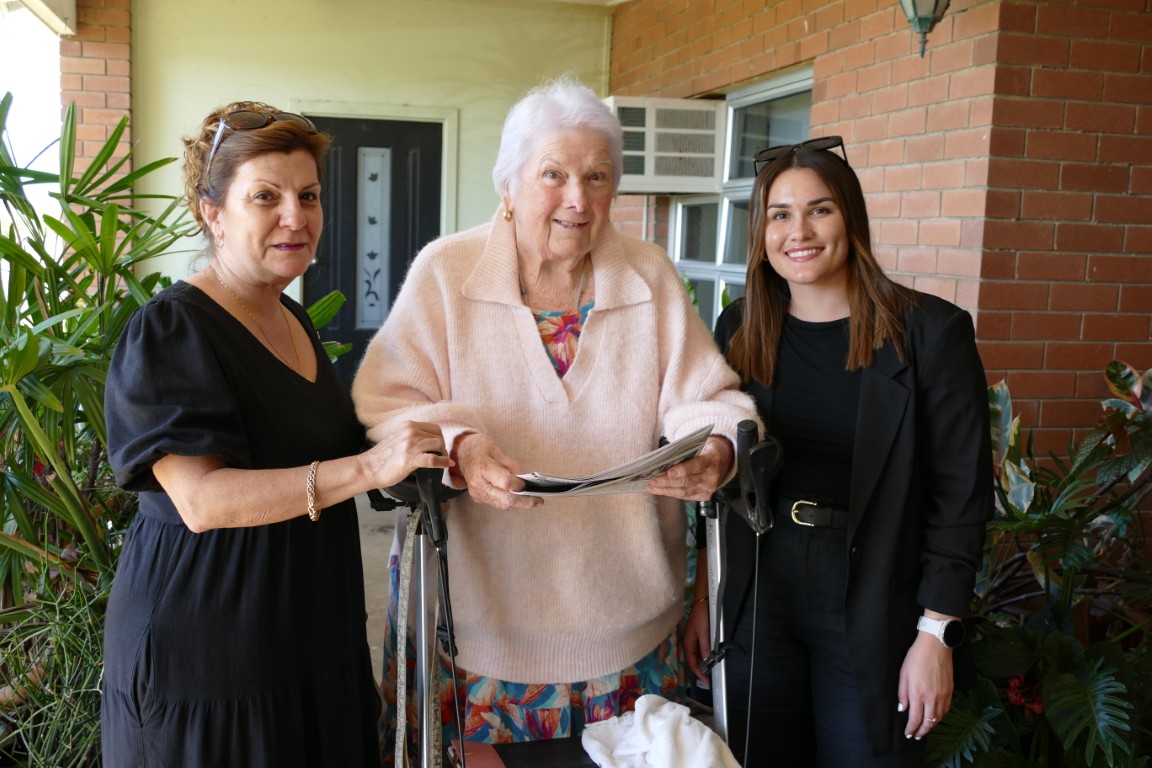
Hiya Hinchinbrookshire! The other day, I had the chance to join the Meals on Wheels delivery run with a couple of friendly faces from NAB, Jess Castellani and Teresa Nieminen. What struck me straight away was how much heart goes into something as simple as delivering a meal. It’s not just about dropping off a meal, it’s about having a quick yarn, checking in and sharing a smile. Jess put it beautifully when she said, “Meals on Wheels is more than a meal, it’s a moment of connection. Sometimes
Read the full story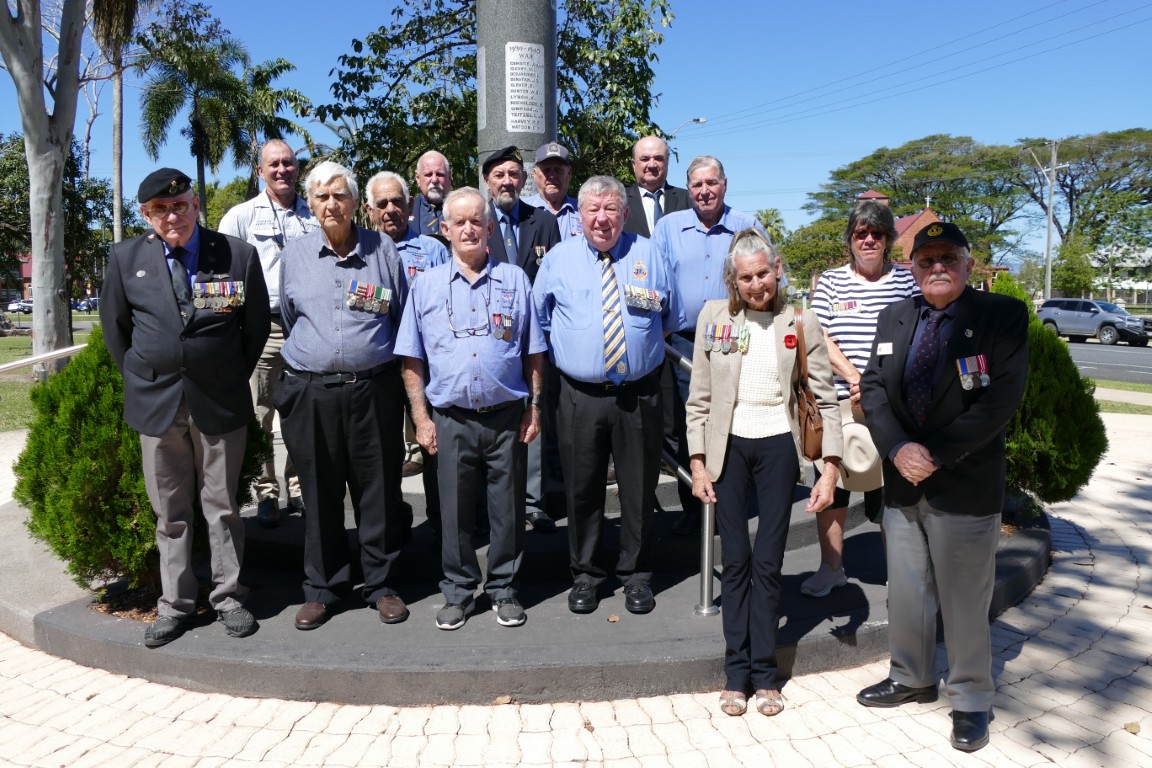
All around the Shire, and Australia, Vietnam Veterans' Day was commemorated in remembrance of the Battle of Long Tan and other Australian operations in the Vietnam War. “Vietnam Veterans Day holds profound importance in Australia's national consciousness. It is not merely a day etched into the calendar, but a moment of collective reflection, a time to pay tribute to those who served to acknowledge the complexity of their experiences and to ensure their sacrifices are never forgotten.” “The sto
Read the full story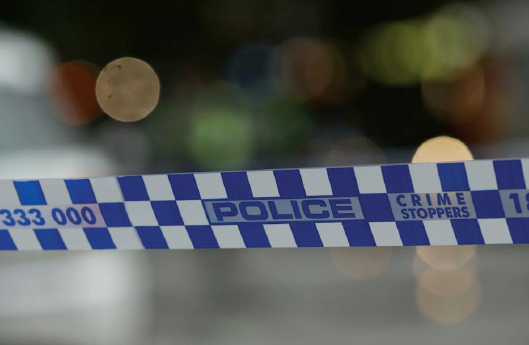
Police are continuing to appeal for public assistance to help locate dashcam footage of a silver Toyota Hilux involved in an armed robbery in Cardwell on Saturday, the 26th of July. Motorists who travelled on the Bruce Highway through Cardwell between 5pm and 6pm, or through Euramo between 5.30pm and 6.30pm, are urged to check their dashcam recordings. Anyone with relevant footage or information is encouraged to contact Policelink via the online suspicious activity form at www.police.qld.gov.a
Read the full story
The Ingham Lions Club has wrapped up an incredible 2023-2024 Lions year, celebrating a range of achievements, community contributions, and milestones that showcase the club’s dedication to the Hinchinbrook region.
From July to June, the club was actively involved in numerous community events, including manning the gates at the Ingham Show, supporting the Townsville to Cairns Children’s Cancer Bike Ride, and hosting the Maraka Festival BBQ. The club also contributed to the Camp Kanga initiative, Tasman Turtle, and Christmas Cheer, among other events, spreading goodwill and fostering community spirit.
In addition to their long-standing projects, the Lions undertook new initiatives, including supporting the Hinchinbrook Shire Council’s Get Out, Get Active and Connect program, celebrating Wilmar Macknade Mill’s 150th anniversary, and hosting Carols at Forrest Beach.
Beyond local efforts, the Ingham Lions were actively represented at conventions, attending district, national, and international events. Highlights included a group costume win at the Lions District Q2 Convention and marching alongside 11,000 members from 160 countries at the Lions International Convention in Melbourne.
The club celebrated its 62nd anniversary in March 2024 with a special dinner attended by the District Governor, where two new members were inducted. A successful membership drive saw the addition of seven new Lions, ensuring the club’s legacy continues to grow.
Over the year, the Lions raised $30,750 in donations, supporting vital causes such as the Ingham Hospital ($8,500 for equipment), Meals on Wheels ($16,000 for a cold room), Ronald McDonald House, flood disaster relief, and medical research.
The Ingham Lions Club remains a cornerstone of the community, thanks to generous support from local businesses, volunteers, and the wider Hinchinbrook community. Their efforts highlight the power of kindness and community spirit, ensuring a brighter future for all.

Australia Day is our National Day of Celebration, a day we can all be proud of and reflect on how fortunate we are to live in the best country in the world.
The thing I love about living in a free country is on Australia Day, we are free to celebrate however we wish, whether it’s attending formal events, enjoying a barbeque with mates, camping or exploring the outdoors with family and friends, or just taking some time out to reflect, we are all free to do Aussie Day our way.
This year, because the 26th of January fell on a Sunday, some were fortunate enough to score a long weekend with the public holiday falling on Monday. To ensure maximum public attendance and to allow families to enjoy the spoils of a weekend away, the Hinchinbrook Shire Council and Cassowary Coast Regional Council decided to hold their official ceremonies on the Friday evening. While this raised a few eyebrows, I think most people appreciated the chance to attend the ceremonies whilst having the Sunday to themselves to relax and celebrate.
I would like to congratulate all the Australia Day award winners and nominees from Hinchinbrook. Being nominated for one of these awards is a great honour, as it means that you have been recognised for your outstanding contribution to our community. In my role as the Member for Hinchinbrook, I witness daily the incredible efforts of everyday people doing extraordinary things to make Australia a better place for us all through community service and volunteering.
In addition to the formal award ceremonies, it was heartening to see celebrations taking place across our district. Although I couldn’t physically be at them all, it was great to know events were being held in Cardwell, Rollingstone, Toomulla, Forrest Beach, Ingham, Burdell and with many of our public pools and leisure centres hosting Aussie Day functions. This is a true testament to the Australian spirit. A big thank you to the local council staff, community groups and volunteers who worked hard to make this happen.
The resurgence of support for Australia Day gives me hope of a proud nation under one flag moving forward together.
Contributed with thanks to Nick Dametto MP Member for Hinchinbrook


The Queensland Police Service (QPS) is urging every road user to re-evaluate their driving behaviours as the state faces a devastating start to 2025, with more than 15 lives tragically lost on Queensland roads in the first few weeks.
The figure more than doubles the fatalities recorded during the same period last year and is the highest lives lost toll for this period since 2020.
It comes amid the state-wide road safety blitz, Operation Mistletoe, which has seen officers right across Queensland deployed on high visibility road safety operations with the aim of reducing the lives lost on Queensland roads.
Despite consistent and targeted police action, the start of 2025 has seen 17 people lose their lives on Queensland roads, from crashes as at 20 January 2025.
QPS Road Policing and Regional Support Command, Acting Chief Superintendent Garrath Channells said these crashes are deeply concerning.
“These tragic numbers are not just statistics, they represent fathers, mothers, sons, daughters, and friends whose lives have been cut short,” Acting Chief Superintendent Channells said.
“Police are out there doing everything they can on the roads to try and bring this figure down and ensure people can return home to loved ones or their families.
“To then observe the deadliest start to the year since 2020 is truly harrowing.
“We’re pleading with every road user to make the right choices, because every decision you make on the road has the power to save a life or take one.”
The QPS continues to analyse road data from 2024, to learn if there are ways to better inform road safety operations for the 2025 year.
Towards the end of 2024, the QPS observed a growing trend in deaths involving vulnerable road users, including pedestrians, motorcycle riders, and users of personal mobility devices such as e-scooters and e-bikes.
“Pedestrian deaths more than doubled with eight lives lost during 2024 compared to three in 2023, while eight people lost their lives on personal mobility devices, such as e-scooters and e-skateboards during 2024, compared to two lives lost in 2023,” Acting Chief Superintendent Channells said.
“We also saw an increase in deaths of motorcycle riders with 79 lives lost in 2024 compared to 77 motorcycle rider deaths in 2023.
“In the year ahead, QPS is leveraging this intelligence and technology to deploy targeted and tactical road safety operations to make Queensland’s roads safer, but enforcement alone won’t solve this.
“Road safety requires a shared commitment from every road user.
“Whether you’re a driver, rider, passenger, or pedestrian, your actions matter. Together we can prevent further tragedies.”
To learn more about road safety and QPS’s initiatives to help make Queensland’s roads safer, visit: www.police.qld.gov.au/initiatives/road-safety


This week, the Hinchinbrook Community Centre hosted its first-ever "Canasta & Cards" activity, a new initiative designed to combat social isolation and foster a sense of belonging. Canasta & Cards offered attendees a chance to engage in friendly competition and lively conversation.
The initiative was developed by HCSC to create a safe and welcoming space for people to connect. HCSC Community Support Worker Shannen, noticed how many people in our community feel disconnected, especially older adults and those living alone. Her solution was to hold social card games as they are a simple yet powerful way to bring people together.
Participants expressed gratitude for the opportunity to meet new people. "This has given me an opportunity to connect," said an attendee.
"It’s given me the option to connect with others outside of the group.”
HCSC are hosting many social activities for those feeling isolated. As Shannen put it, “It’s not just about the games; it’s about building relationships and reminding people they’re not alone.”
Canasta & Cards is a weekly activity held every Wednesday at The Centre on Townsville Rd. The next gathering is scheduled for Wednesday 29th from 2pm – 4pm.
For more information on this, or the other activities on offer, visit our Facebook page or contact the Hinchinbrook Community Support Centre on 4776 1822.
Contributed with thanks to the Hinchinbrook Community Support Centre


While the off-season in the sugar industry is often seen as a time for rest, Herbert River Canegrowers is turning it into a period of growth, innovation, and community support. As a pivotal organisation for local cane farmers, Herbert River Canegrowers is dedicated to preparing its members for the upcoming harvest while equipping them with the skills needed to thrive in a rapidly evolving industry.
This year, Herbert River Canegrowers is offering a range of workshops and training courses designed to address both the immediate challenges facing the sugar industry and the broader, long-term trends reshaping the sector. These programs aim to enhance the knowledge and capabilities of local growers, ensuring they stay competitive and sustainable.
One of the key challenges facing the local sugar industry is a shortage of semi-skilled workers, particularly in farming and transport operations. The problem has been exacerbated by an aging workforce, with experienced workers retiring and less young people entering the industry.
"The workforce gap is widening every year," said Canegrowers Herbert River manager Frank Scardamaglia. "It’s becoming increasingly difficult to recruit and retain skilled labour, particularly in critical areas like harvesting. Without the right people in place, operations can face significant delays."
In response, Herbert River Canegrowers is offering practical solutions, providing training for current workers while creating pathways for new entrants to the workforce. An Escort Pilot Course is fully booked out in February, which will be held at the Canegrowers conference room in Ingham. A Haulout Course will be run in May by an experienced Canegrower’s trainer. A Transport & Workplace Health & Safety Roadshow is also planned for May, offering essential updates on transport safety legislation to ensure that both growers and contractors operate safely and efficiently.
Canegrowers Herbert River is committed to fostering inclusivity and leadership. The Women In Sugar Herbert (WISH) group, a branch of Canegrowers Herbert River, will embark on a trip to Brisbane and Rocky Point this year. This initiative is designed to empower women in the sugar industry by fostering connections, sharing experiences, and strengthening both personal and professional networks.
Nurturing future leaders is another priority for Herbert River Canegrowers. The Young Growers Development Group will travel to Cairns mid-year, bringing together emerging industry leaders to explore the latest trends, innovations, and best practices in sugarcane farming.
This initiative will offer young growers the opportunity to learn from industry experts, network with peers from across Queensland, and gain insights into advanced farming technologies and sustainable practices.
Herbert River Canegrowers remains committed to supporting its members and the sugar industry with programs designed to build resilience, promote innovation, and foster leadership within the industry. For more details on upcoming workshops and events, visit our website or follow us on Facebook. Alternatively, drop by our office or contact our team on (07) 4776 5350 or via email at hroffice@canegrowers.com.au.
Contributed with thanks to Canegrowers Herbert River manager Frank Scardamaglia

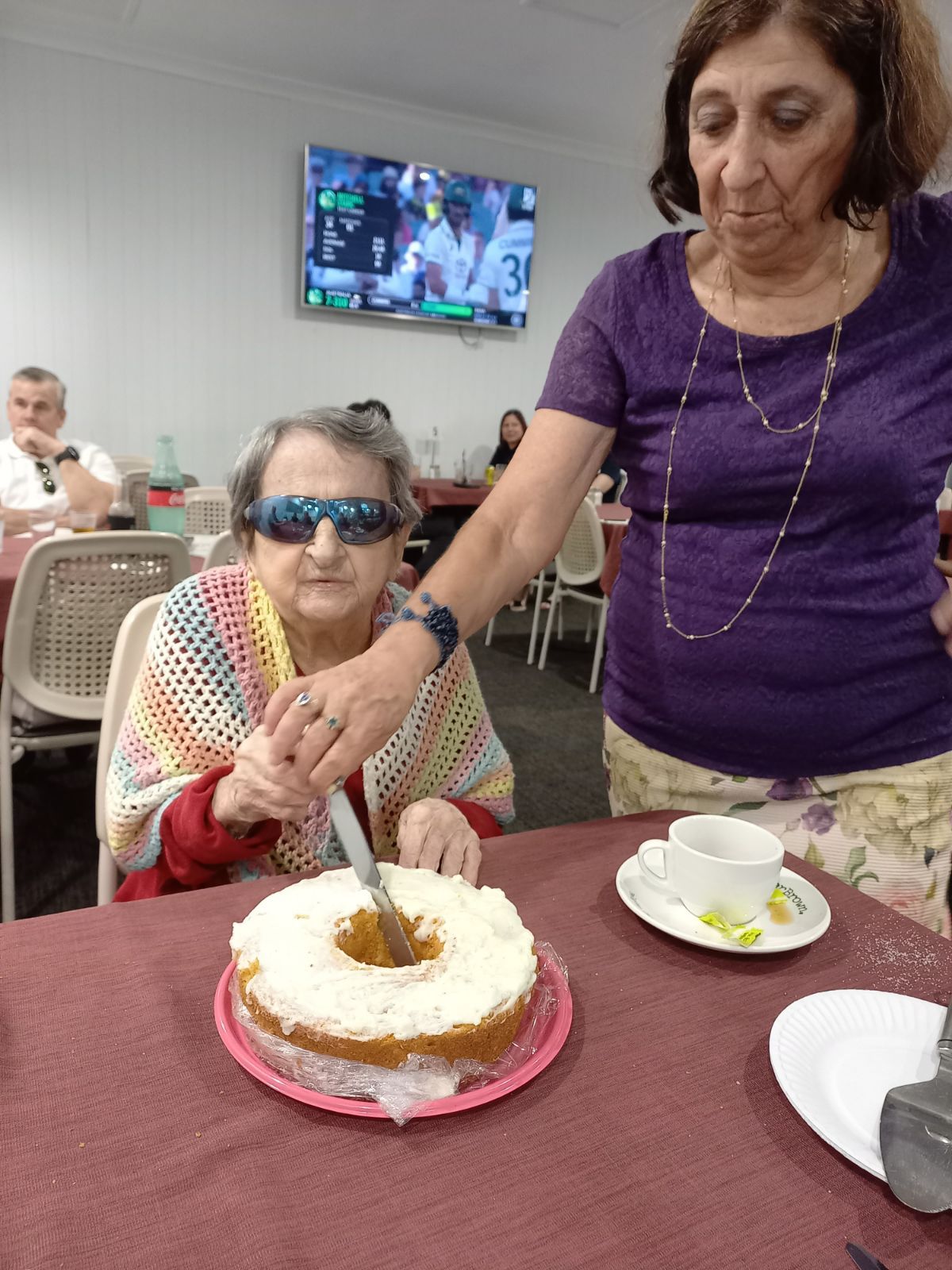
Mary Patane has lived in Ingham all her life, and over the past 67 years, she has witnessed the township undergo plenty of changes since her primary school days spent at Macknade State School.
“It’s changed a lot, and I don’t think there are many businesses that are there now that have been there since I was a kid – I’m thinking of dress shops, fruit shops, but no, none,” explained Mary.
“I went to Macknade State School which is still there - it’s a smaller school, but when I was going there were 100 students, and I liked school, and enjoyed going and because I went to a small school, some of the friends I made then, are still some of my friends now.”
Just last week on Wednesday the 22nd of January, Mary and her husband Sam Patane celebrated 48 years of marriage, and in that time, the pair have raised two children and made countless memories together. Time spent with loved ones certainly is a core value of Mary’s, and having just visited her daughter, Helen, in Brisbane, Mary cannot wait until she can see her son Tony and two grandchildren (aged five months and nine years old), when they visit again from New Zealand.
Mary’s late father moved to Australia from Sicily when he was just three years old, and she still speaks Sicilian here and there with her mother, who recently celebrated her 94th birthday!
“We had a few outings because December is a busy month, and for her birthday the five of us took her out for lunch as she likes going out, she gets all dolled up, and it’s nice that we can still go out together,” shared Mary.
“My mother is bilingual, and it’s actually quite funny if you’re to observe us, because she’ll start a sentence in English, and finish it in Sicilian!”
Still today, Mary finds herself gathering fresh tomatoes and preparing them as her father did to make exquisite pasta sauce to enjoy. When Mary isn’t working, calling or travelling to see her children, you’ll find her crafting and sewing up a storm, taking a minute to work on a puzzle, or visiting her mother in the aged care home.


On the 15th of January, the Cassowary Coast Regional Council, together with representatives from the Australian and Queensland Governments, officially opened the Port Hinchinbrook (Cardwell) Sewerage Treatment Plant (STP). The event was attended by representatives from all levels of government, including Cassowary Coast Mayor Teresa Millwood, Division 1 Councillor Chris Littlemore, Senator Anthony Chisholm, and Member for Mulgrave Terry James, representing the Deputy Premier.
Nick Dametto MP, Member for Hinchinbrook, praised the collaborative effort behind the project, which addresses significant environmental concerns.
“The STP in Cardwell has been years in the making and is a testament to what can be achieved when all levels of government work together,” Mr. Dametto said.
“Before this, untreated sewage overflowed into the Great Barrier Reef, an issue no government could ignore.”
The $19.3 million project, delivered on time and on budget by Haslin Constructions, was funded by $6 million from the Federal Government and $13.3 million from the State Government, including a critical $7 million shortfall secured late last year.
Mr. Dametto also thanked the Hon. Bob Katter MP for securing federal funding and residents for their support in lobbying for the project.
“This is a turning point for Port Hinchinbrook,” Mr. Dametto added. “It addresses an environmental crisis, boosts liveability, and supports the region’s growth.”
The completion of the $19.3 million sewerage treatment plant marks a significant milestone in the ongoing development and normalisation of Port Hinchinbrook. This project is the final stage in the normalisation process, addressing the estate's privately owned infrastructure, which includes roads, culverts, and pump stations.
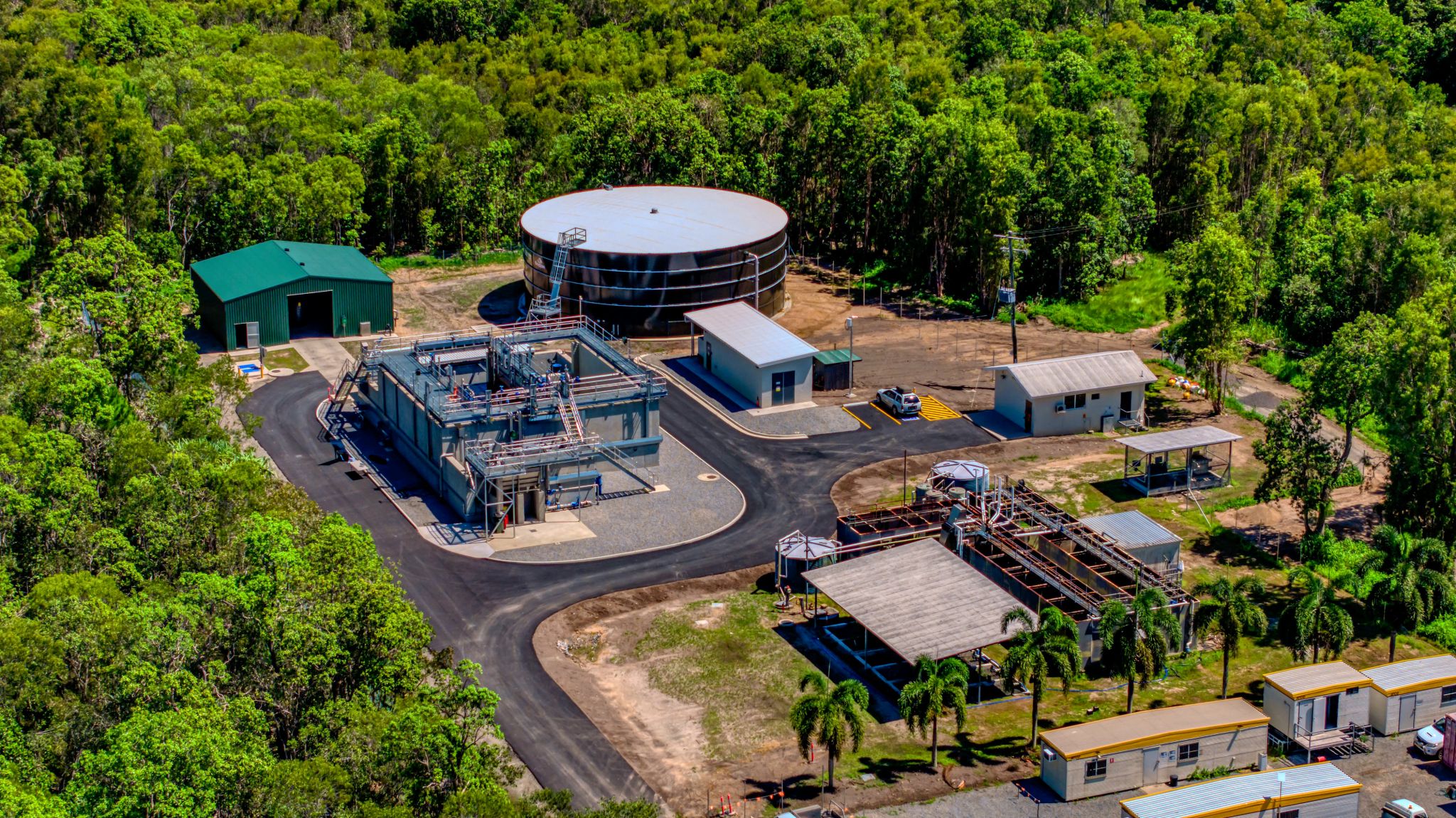

.jpg)
Hinchinbrook Chamber of Commerce, Industry & Tourism Inc. held it’s first meeting for 2025 last Monday evening. The meeting was well attended and Chamber were pleased to see so many businesses represented and keen to explore what opportunities the New Year will bring.
Those in attendance were provided an update on the final projects of 2024, a very comprehensive overview of the outcomes achieved since the engagement of administration support officer Christina Spencer and discussions regarding the direction for Chamber in 2025.
Many attendees enjoyed hosting nbn Australia representatives Casie and Karley and listened as the pair provided an update on the current infrastructure works being delivered in the Hinchinbrook Shire, as well as valuable education in relation to how consumers can achieve best outcomes from these upgrades. The ladies have already been engaging with the community to provide this broader education and have offered Chamber the opportunity to host workshops in the future, that will provide more comprehensive information to the business community. Chamber welcomed this opportunity and will market the dates and location in the very near future, once details are confirmed.
Representatives from the Hinchinbrook Life Newspaper and Herbert River Canegrowers also attended and provided updates.
“It is pleasing to hear the Hinchinbrook Life newspaper continues to evolve as the community is embracing the publication and the business community has the opportunity to showcase their products via print media,” shared Chamber.
“It was also very valuable to hear a wrap up of the 2024 cane harvest season and some of the potential influences that may flow to the business community, as the New Year begins.”
Some of the activities Chamber intends to deliver this year include, workshops, with first being Digital Content Creations Workshops in February, Coffee Connection Catch-ups and Members Showcasing Events, as well as training opportunities that would be of interest to the wider community. Already a busy year ahead is planned by Chamber as they continue to support and deliver for their valued membership base.
.jpeg)
.jpg)
Mungalla Station, nestled between Townsville and Cairns, is a place of deep cultural and historical significance. Located just 12 kilometres east of Ingham, this land belongs to the Nywaigi Aboriginal people, who have inhabited the area for thousands of years. The traditional territory of the Nywaigi people stretches from the Herbert River in the north to Rollingstone in the south, and west to Stone River.
Today, the 880-hectare property is owned by the traditional custodians, who use it to promote Aboriginal cultural values while creating economic and cultural opportunities for future generations.
The Legacy of Mungalla
Mungalla is a place of both historical and contemporary significance, and it serves as a bridge between past and present. The Nywaigi people’s mission is clear: “Mungalla Station is a resource owned by the Nywaigi Traditional Owners for the purpose of fostering Aboriginal cultural values by building economic and cultural opportunities through the careful use of our country as a legacy for our children.”
Mungalla’s history also reflects the story of the Pacific Islanders, known as Kanakas, who were brought to Queensland to work on sugar plantations between 1863 and 1904. These Melanesian people, originally from Vanuatu, the Solomon Islands, and New Caledonia, were subjected to harsh conditions and often worked on properties like Mungalla after the White Australia Policy forced their deportation from the sugar industry. The cultural intersection between the Nywaigi people and the South Sea Islanders is an important aspect of the area’s history.
Cultural Significance of The Dreaming
The Aboriginal people of Mungalla and the surrounding areas have a rich mythology that has been passed down through generations. One of the most prominent stories is that of the Rainbow Serpent, a symbol of creation in Aboriginal culture. This mythical figure is said to have shaped the land and created the ridges, mountains, and gorges of the region. The Rainbow Serpent is also believed to control water, which is seen as life’s most precious resource.
The Tragic Story of Captive Lives
Mungalla’s history also includes the painful chapter of Indigenous people being taken from their homeland. In the 1990s, the story of these captive lives was brought to light through an exhibition at the National Library of Australia, “Captive Lives: Looking for Tambo and his Companions.” The exhibition focused on Tambo, a Nywaigi man from Mungalla, whose mummified body was discovered in a basement in Ohio, USA. Tambo’s remains were eventually returned to his homeland with the help of the Manbarra elders, where he was laid to rest.
Environmental and Cultural Preservation
Today, Mungalla remains a place of both environmental and cultural preservation. The property has long been known for its birdlife, with over 230 species recorded. The wetlands, home to numerous migratory birds, are an important feature of the property. Additionally, saltwater crocodiles inhabit the wetlands and Palm Creek, a reminder of the wild and untamed nature of the region.
The property has undertaken extensive wetlands rehabilitation projects to combat invasive species such as Hymenachne, a semi-aquatic grass that threatens the ecosystem. In collaboration with CSIRO and Greening Australia, Mungalla has made significant strides in restoring the wetlands and improving water quality in the region.
Tourism and Education
In recent years, tourism has become an important part of Mungalla’s mission. Visitors can learn about Aboriginal culture, the history of the property, and the ongoing environmental efforts at Mungalla. The "Captive Lives" exhibition is now housed in the homestead, where it serves as a powerful reminder of the past.
Mungalla is also a hub for educational experiences, with school groups visiting to learn about Indigenous culture, environmental conservation, and the history of the land. Through hands-on experiences, students participate in the property’s environmental projects, planting trees and helping with revegetation efforts.
Mungalla has received several prestigious awards, including the Queensland Tourism Award for Indigenous Tourism, and it continues to be a place of cultural pride and environmental stewardship for the Nywaigi people.
Looking to the Future
As Mungalla continues to thrive as a cultural and environmental center, the Nywaigi people remain committed to preserving their heritage and passing it on to future generations. The property is not only a place of historical significance but also a testament to the resilience and strength of the Nywaigi people, who have overcome centuries of adversity to reclaim their land and culture. Mungalla is truly a place where past and present come together to create a legacy for the future.
Contributed with thanks to Mungalla Station’s Environment and Tourism Officer Laura O’Connor.
.jpeg)
.jpeg)



.jpeg)

.JPG)
Happy New Year to all.
As a Local Government Councillor, I remain committed to championing the needs and visibility of our community of 11,000 plus residents. Our rural setting brings unique challenges and opportunities, and it’s essential that we engage all citizens in discussions that directly impact our daily lives, from vital services like roads and waste management to creating a sense of belonging among our residents.
I firmly believe that effective governance is about more than just administrative tasks, it’s about fostering a vibrant community where every voice is heard. By encouraging active participation and collaboration, we can strengthen connections among residents and ensure that the diverse needs of our community are addressed. This is particularly important in a small community like ours, where each person’s input can significantly shape our shared future.
Community engagement is key to building a responsive Local Government that reflects our collective aspirations. I am dedicated to creating an inclusive environment where everyone feels empowered to contribute to the ongoing development and improvement of our local area. This includes supporting our local agriculture and small, medium and large businesses, which are vital to our economy, and ensuring they have the resources and opportunities they need to thrive.
As we move forward, I encourage all residents to get involved, whether it’s attending Council meetings, participating in community events, or simply sharing their thoughts and ideas. Together, we can create a stronger, more connected community that not only meets the needs of today but also paves the way for a prosperous future for all of us. Let’s work collaboratively to ensure that our rural community continues to flourish.
.jpeg)

Sir Arthur William Fadden was born on 13 April 1894 in Ingham, eldest of ten children of Irish-born parents Richard John Fadden, police constable, and his wife Annie, née Moorhead.
Fadden was acting prime minister for four months early in 1941 (while Menzies was away in Europe) and earned respect for his down-to-earth manner.
Robert Menzies resigned the prime ministership on 28 August 1941. Fadden was selected as his successor and served as the 13th prime minister of Australia from 29 August to 7 October 1941.
Fadden left parliament in 1958 after delivering his eleventh and final budget. He pursued interests across a wide range of industries. Fadden worked as a consultant for a sugar mill in Tully and invested in an iron ore deposit at Mourilyan.
Fadden died of leukaemia on 21 April 1973.

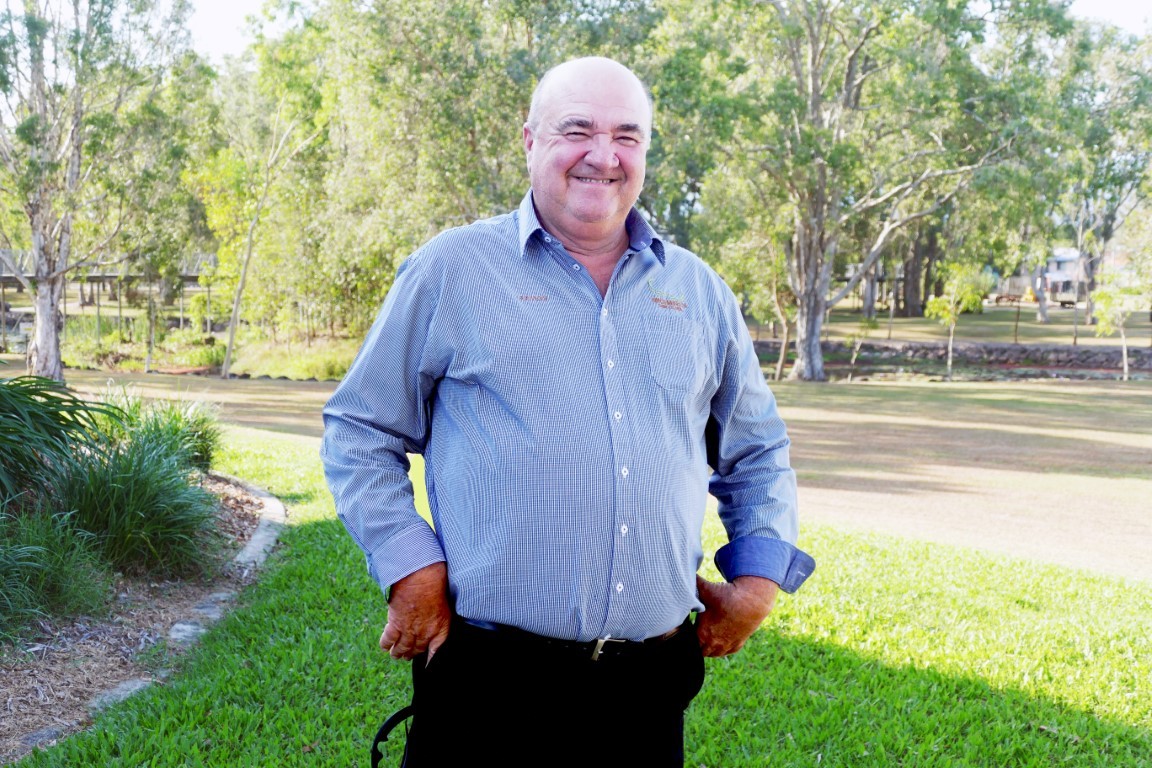
As we start a new year, I would like to take this opportunity to remind people that Council’s monthly meetings occur on the last Tuesday of each month and meetings are open to the public whom may wish to attend. The meeting agenda is also available to the public on Council’s website the day before the meeting and this enables ratepayers to peruse agenda items including staff recommendations, reports incorporating information on matters for Councillor information, contract tender details and much more information on Council’s daily operations for the previous month. Information you will see includes things like the flying fox dispersal works, road and drain maintenance activities, capital works being undertaken, Information Centre, library and gallery visitor numbers, requests to Council for attention on animals, water, waste and associated issues as well as contracts let by Council to third parties for contractual performances. As a Council we endeavour to ensure that as much information as possible is recorded in the Agenda in the interests of transparency and public knowledge.
For instance, you will see that at its 10 December 2024 meeting, Council resolved to accept a tender from the Marine Specialists to construct and install a new commercial service pontoon at Dungeness at a cost of $381,040.00 with works expected to be completed towards the end of the current calendar year. The project, designed to replace the current stairway infrastructure, was made possible through the financial assistance of the Queensland State Government for which Council is grateful. Works will not be able to commence until relevant permits from the Department of Environment are secured.
You will also see activities undertaken by Councillors throughout the previous month. The agendas may be accessed at https://bit.ly/3qLtXaH and I urge you to access same to see what Council is up to.
I would also like to remind potential developers in our region that Council remains very keen to encourage new development within the Shire, and to that end, has adopted Development Incentive Guidelines which allow for the consideration of waiving development application fees and infrastructure charges.
The Guidelines provide direction as to the circumstances where Council may consider waiving fees and charges for developments which meet certain eligibility criteria. Please see our more detailed article in our Council Connections.
And finally, congratulations to all our local residents who have been nominated for this year’s Australia Day awards. You are all truly deserving of the nominations and I wish you every success at the Awards.


Bananas: they're not just a-peeling snacks but the tropical treasures that keep the Hinchinbrook region ripe with history, culture, and economic impact.
The Hinchinbrook region in North Queensland is a significant contributor to Australia's banana industry, offering several intriguing facts:
1. Historical Roots: In the 1880s, the Tully River area, just north of Cardwell in the Hinchinbrook region, became a hub for Chinese banana farms. Chinese immigrants introduced banana cultivation to North Queensland in the 1870s, establishing a foundation for the region's future agricultural success.
2. Economic Impact: Queensland accounts for 94% of Australia's banana production, with the majority concentrated in North Queensland. The Hinchinbrook region, including areas like Tully, Innisfail, and Kennedy, plays a pivotal role in this output. The industry significantly contributes to the local economy, providing employment and supporting related sectors.
3. Cavendish Dominance: The Cavendish variety dominates Australia's banana production, accounting for 97% of the market. This variety is favoured for its resilience and suitability to the region's tropical climate. Other varieties, such as Lady Finger, Red Dacca, Goldfinger, Sucrier, Ducasse, and Plantains, make up a smaller portion of the market.
4. Environmental Challenges: The region's tropical climate, while ideal for banana cultivation, also presents challenges. Cyclones and diseases like the bunchy top virus have historically threatened crops. However, proactive measures and research have helped mitigate these risks, ensuring the industry's sustainability.
5. Community and Culture: Banana farming has shaped the cultural landscape of the Hinchinbrook region. The industry's growth led to the establishment of communities and infrastructure, fostering a unique blend of cultures and traditions. Events celebrating bananas and their significance are common, highlighting the fruit's role in the region's identity.
From their rich history to their vibrant presence in the Hinchinbrook community today, bananas truly stand as a symbol of growth, resilience, and the tropical charm of North Queensland.


Australian sugar cane farmers will soon trade one tropical paradise for another as they explore first-hand the implications of Brazil being ranked number one and two in the world for sugarcane and ethanol production.
Queensland sugarcane farmer Paul Atkinson is embarking on the 10-day tour for a second time because he is interested in how Brazil’s harvest and mills operate.
“Brazil is our main competition,” Mr Atkinson said, adding its use of sugar to produce ethanol affected world sugar prices and thus Australia’s own sugarcane industry.
While sugar may be Australia’s second-largest export crop after wheat, with 3-4 million tonnes (MT) valued at $1.5 to $2.5 billion headed overseas each year, these figures are dwarfed by Brazil’s.
The South American nation produces about half of the world’s total sugar exports at more than 32MT per year, according to the US Department of Agriculture (USDA), surpassing Australia’s total sugarcane production.
To put things further into perspective, for every tonne of sugarcane produced down under, Brazil produces about 22 tonnes, with about half of this sugar then being used to make ethanol thanks to the Brazilian government’s mandates on fuel mixes.
Stephen Ryan, the CEO of Queensland Cane Agriculture and Renewables (QCAR) and Australian Cane Farmers Association (ACFA), said the Brazil tour would give Aussies opportunities to meet with Brazilian farmers, processors, researchers and more to learn about the dynamics of the agricultural giant’s sugar cane and bio-energy industries.
“Brazil, as of 2023, had 350 operational sugarcane plants, of which almost two-thirds produced both sugar and ethanol and almost a third were just for ethanol, USDA figures show,” Mr Ryan said.
“The country made 35.3 billion litres of ethanol in 2023-24, and the demand for biofuel is only likely to increase with the Brazilian government amping up incentives to also produce sustainable aviation fuel to curb the country’s CO2 emissions.
“But Brazil will be motivated to lean towards non-sugar alternatives like corn to meet the demands for biofuel as current world market prices make exporting sugar more commercially attractive.”
As Mr Atkinson explained, extra Brazilian sugar on the world market made Australia’s product less valuable as per the mechanisms of supply and demand.
The Cane Tour to Brazil itinerary includes visiting Sao Paulo, where innovation drives sugarcane cultivation and processing. Sao Paulo is home to the headquarters of Brazil’s largest sugarcane improvement company, the Sugarcane Technology Centre (STC).
The STC owns the largest germplasm bank in the world, is aiming to double Brazil’s average annual sugarcane yields from 75MT per hectare to 150MT per hectare by 2040 and is working to create a synthetic seed to scrap needing to use sugarcane cuttings for planting.
Other highlights of the tour, organised and led by Australian ex-pat Sally Thomson in collaboration with Nuffield Brazil Farming Network, include a trip to the world’s largest corn bioenergy plant, hearing from startups working on Brazil’s agribusiness problems, and an unforgettable down-day to relish Bonito’s pristine rivers and natural wonders.
The cost is $3440 per person, based on twin-share, which includes all domestic travel, accommodation, meals, and visits.
The tour, kicking off in late March, is limited to 20 participants to ensure a quality experience for all.
To register your interest, contact Shirley Norris by phoning 0447 608 158 or emailing farmers700plus@gmail.com



The Foundation for Rural & Regional Renewal (FRRR)’s In a Good Place (IAGP) program is inviting applications for grants up to $20,000 for community-driven projects that strengthen the mental, social and/or emotional health and well-being of people living in remote, rural and regional places, particularly in farming communities.
This round, the IAGP program has $290,000 to support initiatives or activities that prevent or respond to mental well-being concerns.
Priorities include increasing mental health education and understanding to reduce stigma, supporting people to build connections and reduce social isolation, and encouraging, supporting and enabling people to seek help for their mental health.
Thanks to FRRR’s donor partners, community groups and not-for-profit organisations (NFPs) can apply for grants through two streams of funding:
1. Community wellbeing: for projects that focus on strengthening the general mental health and wellbeing of people in remote, rural and regional communities.
2. Farmers and farming communities: for projects specifically supporting the mental health and well-being of farmers and the communities they live in.
Jill Karena, Head of Granting at FRRR, said that while Australia’s farming communities are incredibly vibrant and resilient, even the strongest person needs help from time to time.
“There is a legacy of silence and perceived stigma around speaking up and seeking support for mental health issues. Thankfully, in rural communities, this narrative is shifting,” Ms Karena said.
“Together with our funding partners, we are supporting local groups to be part of that momentum and continue to challenge and positively shift perceptions about mental health in their remote, rural and regional communities.
“We want to fund initiatives that foster open and honest discussions around mental health, support the social and emotional well-being of vulnerable community members, and encourage farmers and other community members concerned with their mental health to seek support.
“We look forward to reading the project ideas put forward by community groups and not-for-profits across the country and to be inspired by their positive, proactive and community-focussed mental health initiatives,” Ms Karena said.
Groups seeking support must first lodge an Expression of Interest (EOI), which is due 14 February.
Final applications from those shortlisted are due by the 11th of March.
Learn more at: https://frrr.org.au/funding/place/in-a-good-place/
